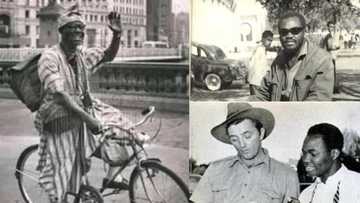CleanUpAyegbami: How Corps Member’s Advocacy on Dumpsites Clearing Helped Fight Malaria in Kwara Community
Ayegbami, Kwara state - Not long after Obinna Gabriel Andrew's arrival at Ayegbami community in Ilorin for his compulsory one-year National Youth Service Corps (NYSC), he came down with malaria.
PAY ATTENTION: Click “See First” under the “Following” tab to see Legit.ng News on your Facebook News Feed!
For someone who's an AA and not unfamiliar with malaria disease, he simply went to the clinic for treatment and did not read too much meaning to it. However, shortly after that, he came down with malaria again. Then again. At some point, he became a “regular customer” at the clinic.
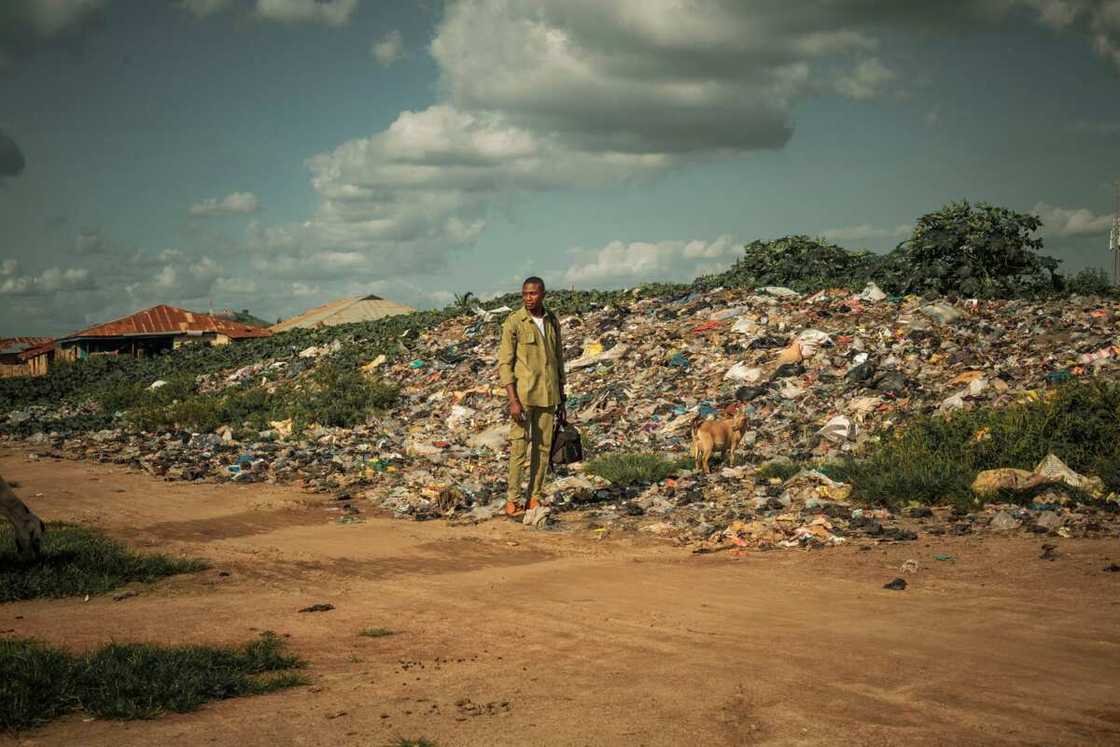
Source: Twitter
Andrew said for the 11 months he spent in Ayegbami, at least six times he fell ill of malaria.
“And there is already one clinic I always attended. In fact they called me customer,” he told Legit.ng in an interview.
Malaria in Nigeria: the bigger picture
Malaria is a life-threatening disease caused by parasites that are transmitted to people through the bites of infected female Anopheles mosquitoes. It is preventable and curable, according to the World Health Organisation (WHO).
PAY ATTENTION: Share your outstanding story with our editors! Please reach us through info@corp.legit.ng!
An estimated 76 per cent of Nigeria’s population is at risk of malaria by living in high transmission areas, a report by USAID stated.
The country accounts for 27 per cent of malaria cases worldwide and the highest number of deaths (24 per cent) due to malaria in 2019 (World Malaria Report, 2020).
So, like many other Nigerians, Andrew is not a stranger to malaria. But he said the Ayegbami experience was a “discovery”.
While personally battling his illness, Andrew discovered he was not alone; “there was a high prevalence of malaria in the community”.

Read also
Reactions as Yemi Alade is reportedly denied Canadian visa over fears she might not leave the country
According to him, almost everybody in the community was complaining of the disease. For further confirmation, Andrew decided to visit the clinic so that he could “speak from facts.”
At the clinic, it was confirmed to him that “...at least one person is treated for malaria in a day.” He wondered what could have been the cause.
A young resident of Ayegbami named Alfa Baba had an idea; the indiscriminate dumping of refuse in the community made every resident vulnerable to the malaria parasite.
“Bi a send da ile yii lo maa n fa efon (our indiscriminate dumping of refuse is the cause of mosquitoes invasion),” Alfa Baba said in the Yoruba language.
Could this be true?
A research piece published by Elijah Tokunbo-Daniel, et al. truly confirms “that accumulation of solid waste in proximity to residential areas constitutes a path way to many chronic diseases including malaria.”
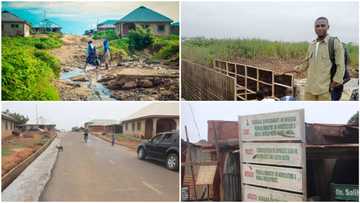
Read also
From nightmare to new hope: How corps member’s media advocacy helped construct Ayegbami community’s road taking lives
O. A. Mokuolu et al., in another research piece, said some of the main causes of malaria in the Sub Sahara African region are poor sanitation and indiscriminate dumping of refuse.
Environmental crisis in Ayegbami
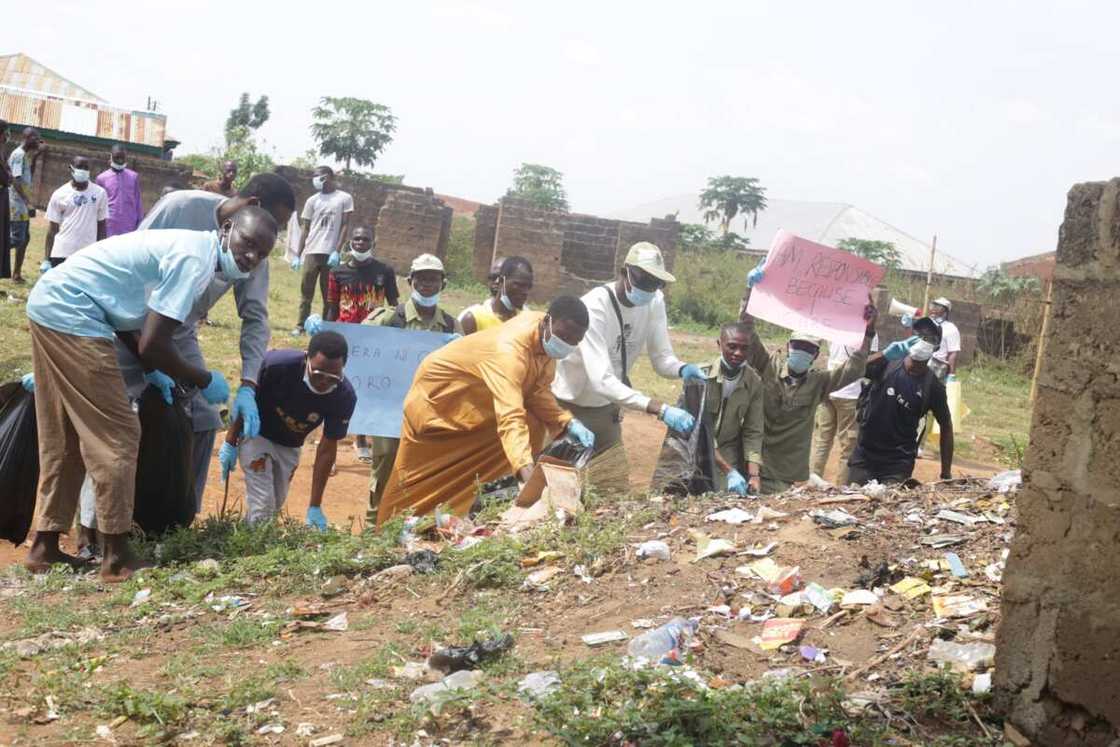
Source: Twitter
Just like Alfa Baba noted, Andrew confirmed that Ayegbami was “in a serious environmental mess.”
“Almost all open spaces were used as dump sites. My findings showed that out of the over 3,500 residents with about 750 households, at least one person was treated for malaria each day,” Andrew said, adding that he got the population figures from his personal survey.
Bodunrin Are Babatunde AbdulQodir, chairman of Ayegbami residents community association, also corroborated Andrew’s position to Legit.ng.
According to him, everywhere was a dumping site.
“Even where we are staying here, it’s a dumpsite. You can see the dredges here. We don’t have a designated area to dump our refuse. And you know, we became a family when we came here.

Read also
Shettima's unveiling: Calabar-based cleric accuses APC of putting his name in 'Bishop list'
“Everyone of us came from different areas. So you dump refuse where you can find an uncompleted building or an open space,” he said.
This, according to Andrew, was how #CleanUp Ayegbami, the campaign to clear up the dumpsites and reduce the malaria prevalence, was birthed.
#CleanUp Ayegbami: the project that birthed a new era of comfort
The #CleanUp Ayegbami project was split into two: a sensitization exercise (medical outreach inclusive) and subsequent waste evacuation.
To execute the task, Andrew drew up a budget of N121,000. He wrote to various organisations seeking funding support and approached the community members who were able to raise N20,000 from the total cost.
“I drafted letters and proposals and wrote to organisations. Because I understood that there were organisations or agencies that are interested in climate change. They are interested in, you know, cleanups, anything evacuation of wastes because they understand the damage it does to our environment.
“So, that’s how I started writing proposals and submitting to agencies and tops among all of them is Food and Beverage Recycling Alliance.
“I was blown by their response. They gave me N110,000 for that project. And they also sent six giant recycling bins all the way from Lagos down to Ayegbami community. And that amount they gave me was only because we had raised a part of it.
“The initial budget that I drew for the budget was N121,000. So, from my consultations with the community members, we were able to raise N20,000.”
In the first leg of the project, Andrew, his colleague corps members and primary school pupils sensitised community residents about the danger the indiscriminate dumping of wastes have on their health. A medical outreach was also organised where “tests were conducted and d*rugs were administered where necessary”.
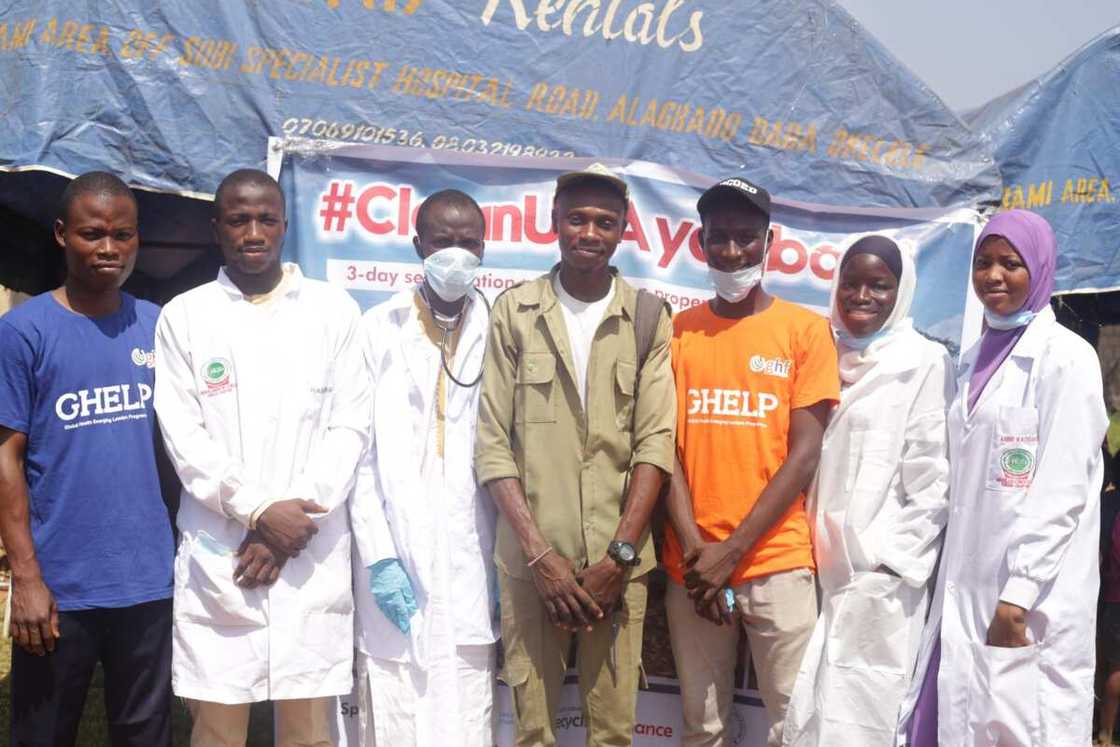
Source: Twitter
The All Round Helping Hand Foundation, a community-based organisation in Ayegbami, provided all the materials used for the medical outreach, according to Andrew.
“They provided all the materials; d*rugs, cottonwool, sanitisers, facemasks, all the materials fro that medical outreach; they provided everything. And that foundation is owned by one of the stakeholders in that community. That is Alhaji Nageri.
“Asides them, there is also Trash Haters, also a climate change enthusiast organisation. They also sent some materials and Ibrahim Opeyemi foundation also sent N5,000. Then, philanthropists in the community, individually, also made support. And that was how we raised the funding for the project. At the end of the day, we spent about N200,000 even though the initial budget was N121,000.”
Health Abundance Initiative, a non-governmental organization focused on ensuring good health and well-being, which is in line with the sustainable development goal 3 (SDG 3), also helped with medical outreach by providing medical personnel.
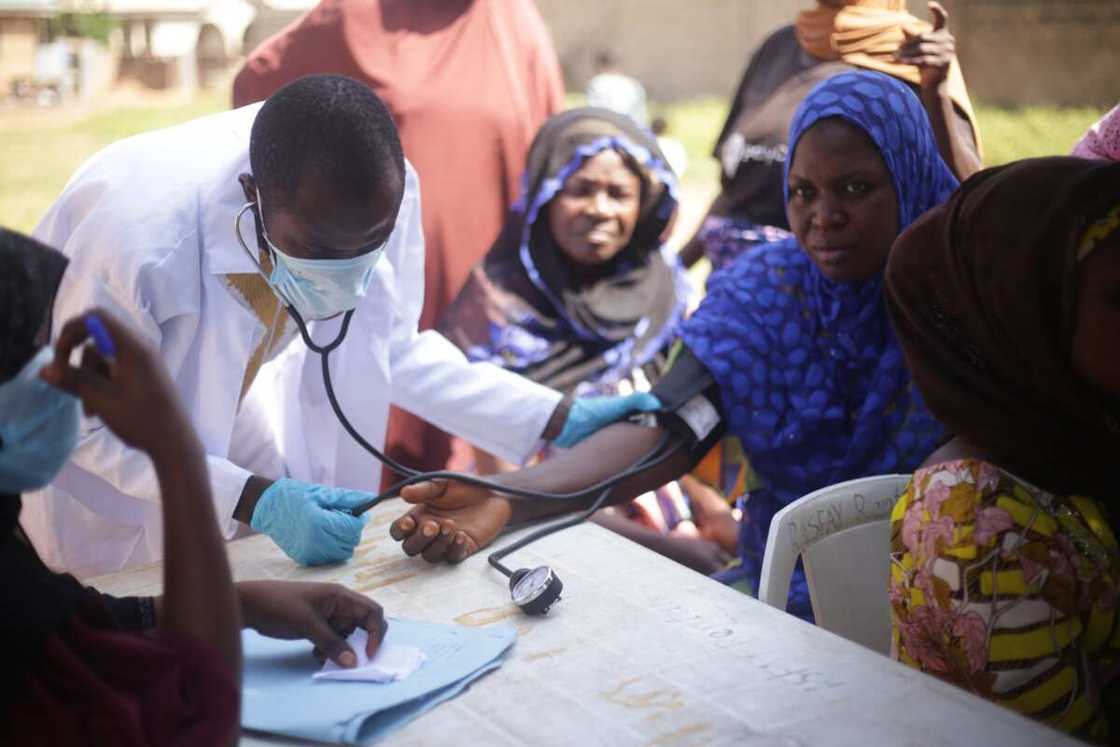
Source: Twitter
After the sensitisation and medical outreach, the huge task of evacuating the waste began. The task was daunting, but the community youths made it lighter.
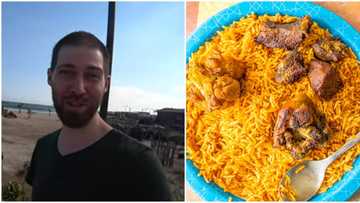
Read also
"They told me the place is dangerous": Oyinbo man lands in Lagos, speaks Yoruba language in viral video
Andrew engaged the service of a firm, Axel Gislam Environmental Services, which provided the waste truck used to dispose of all the cleared waste.
Waste cleared; malaria reduces
With the clearing of the dumpsites, AbdulQodir said, “malaria reduced to the barest minimum.”
Hajiya Sherifat, a female resident in the community, added that as “the wastes are being cleared periodically, there is no mosquito let alone malaria endemic.”
According to Andrew, the clearing of the waste has made tremendous positive changes in the community.
“First off, there were sites, open spaces, that were used for dumping refuse, wastes. On physical terms, all those wastes were cleared. So, the places that wastes were heaped before, we cleared them. So, that one is very easy to identify when you are talking about the impacts of the project. All physical wastes that were on the road, across the streets were all cleared. That one is just for the physical impact.

Read also
2023: Nigerian CEO who became successful through Atiku's scholarship speaks in interesting video
“Now, for the environmental impact, there was a noticeable reduction in the level of malaria cases that the clinics around are now receiving. This is a testament from community members. I am not the one making it up.
“So, there was a reduction in the cases of malaria. And Ayegbami became a cleaner place,” he said.
Health expert speaks
Mrs Bashar Rihannat Olesin, the officer in charge of the Dada community health centre in Ilorin East local government, which also serves the Ayegbami community, confirmed the project's impact.
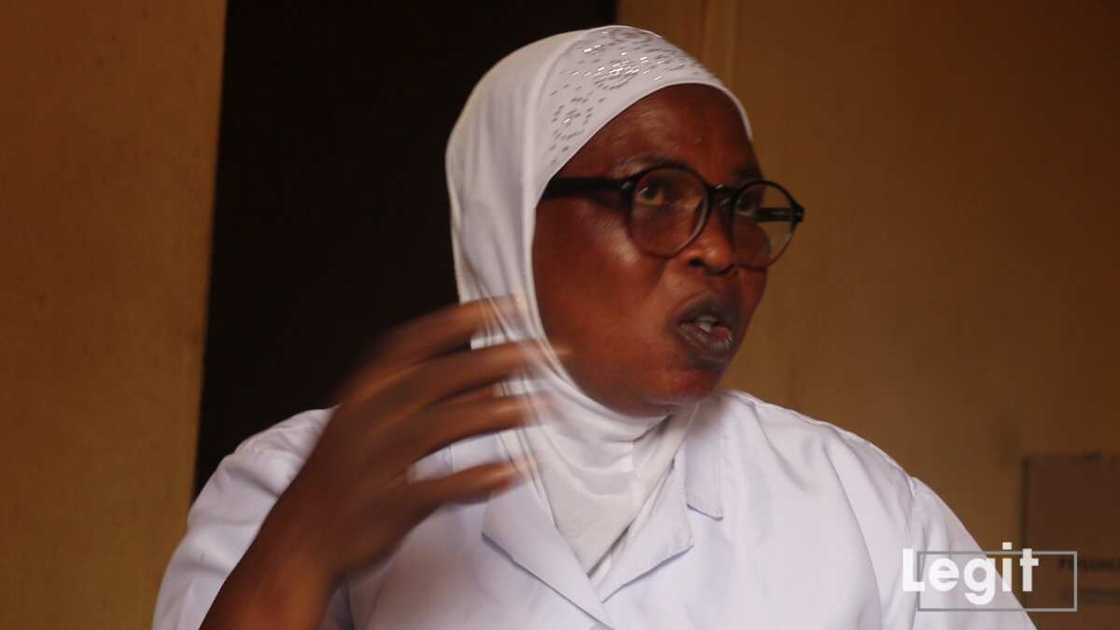
Source: Original
According to her, before the dumpsites were cleared, the clinic used to record high cases of malaria, especially among underage children like 0-5 years. They usually brought children for malaria treatment regularly, especially during the rainy season.
This, however, has reduced since the clearing of the dumpsites. Even the cases of malaria among pregnant women have reduced.
In her words:
“We have the data at the records office which shows malaria cases reported before and after the dumpsites were cleared.
“Before the dumpsites were cleared, we used to have many patients seeking treatment. The population has reduced since the wastes were cleared.”
Mrs Olesin said the clinic’s records show a reduction in cases of malaria reported at the clinic.
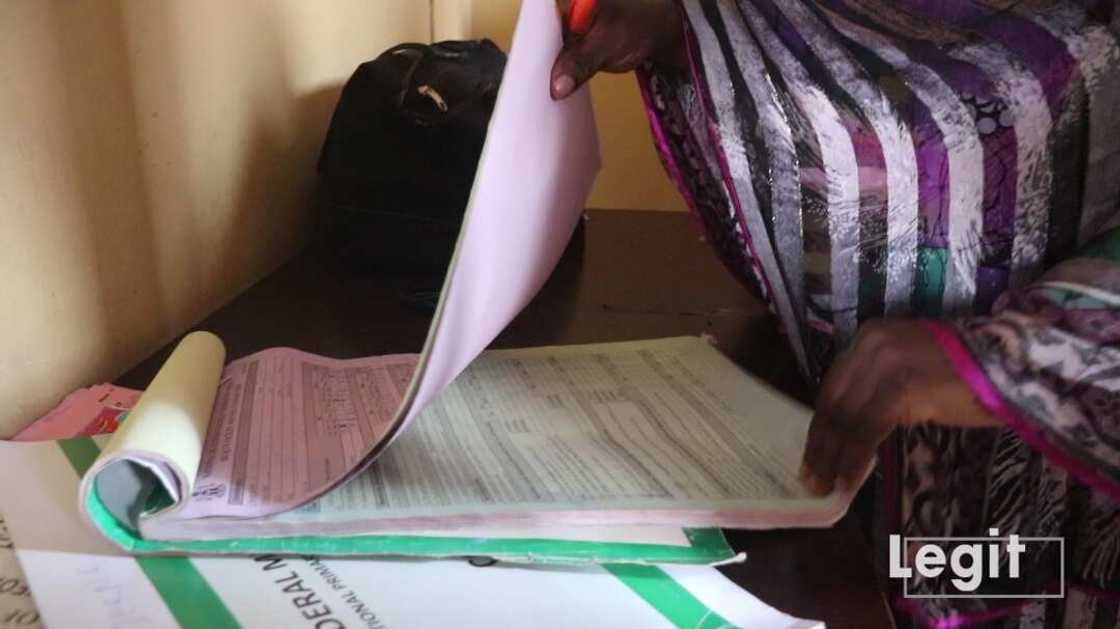
Source: Original
Speaking further on her personal observation as a health worker, she stated that “residents have now become healthier” ever since the evacuation.
However, Mrs Olesin admitted that she does not a full picture of the situation as some residents engaged in self-m*edication and did not visit the clinic for treatment.
Beyond the clearing of the dumpsites, the health worker urged the government to provide free mosquito nets and malaria preventive/anti-malaria d*rugs to residents, especially children, during rainy seasons to further reduce malaria cases in the community.
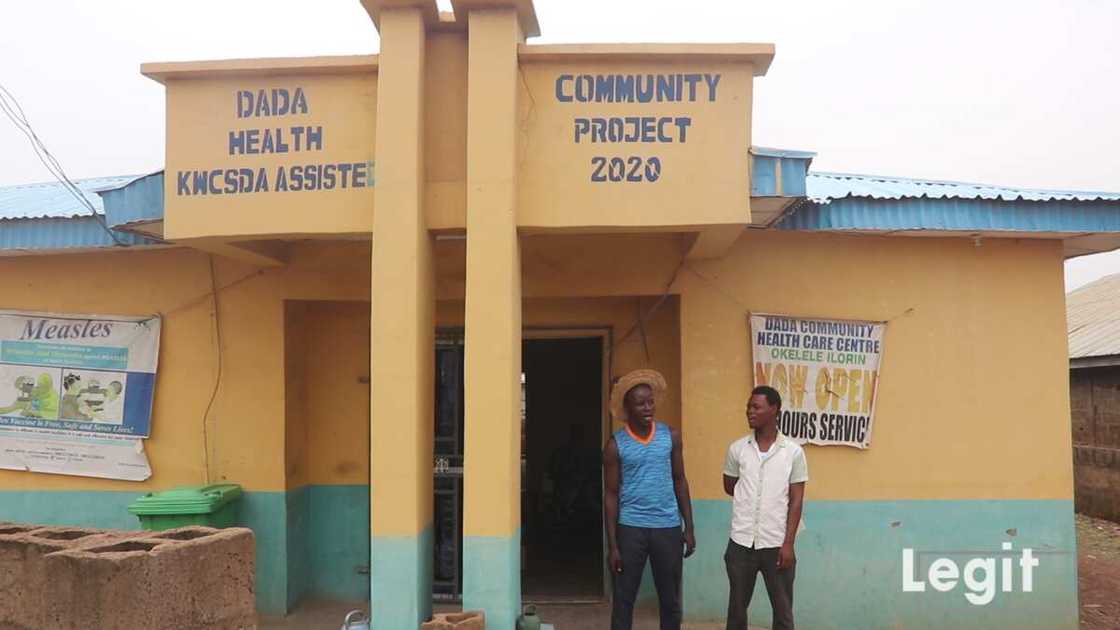
Source: Original
Ayegbami does not want the waste to return
Shortly after clearing the dumpsites, the heaps started resurfacing again, according to Mr Kayode. However, Andrew appeared to have also anticipated this.
To ensure the project outlives his stay in Ayegbami, the ex-corps member and the community agreed to a monthly clearing exercise.
They engaged the service of a firm which provides a waste truck to pack the refuse and take to the state’s designated dumping site every last Saturday of the month.
“... every last Saturday of the month we contracted the waste management officers within the state, they will be coming to Ayegbami to pack all these refuse every last Saturday of the month and we are ready to sustain that,” Mr AbdulQodir said.
The waste truck charges N20,000 per trip which the households in the Ayegbami community regularly contribute, even to the present moment. Many households, however, were expected not to cooperate because some preferred burning to evacuation.
“It was the community that was sponsoring the project, so we were raising it by donations from the community. Now, like I said earlier, there are about 750 households in that community.
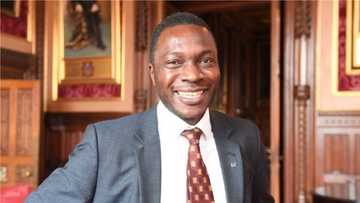
Read also
5 important things to know about Nigerian man who became new serjeant-at-arms in UK parliament
“....So, on N200.00 per household, that was how we were gathering the money for that project and also we are receiving monies from philantropists in the community,” Andrew said on further collaboration with the community.
The youth leader corroborated Andrew’s story on the payment. He said the community now pays about N20,000 to N30,000 per trip every last Saturday of the month, though the exercise does not last a day– just about four hours.
Besides this, fuel scarcity and other factors contribute to the amount the community pays for the service of the waste truck.
However, the community has also taken steps to ensure the monthly cleanup is not hindered in any way.
A committee which has been set up on waste management was said to be performing very well. Apart from this, the community also made an effort to get the environmental arm of the local government involved.
“They told me that from their discussions with them, they themselves have decided to support the project by making their own truck also available whenever they want to do waste evacuation in the month.,” Andrew said.
He, however, expressed concern that “the truck that they are trying to get through the local government might not be as consistent as a private enterprise would.”
The stark reality: How long can the community keep up with the funding?
Andrew expressed optimism that the community will not stop funding the waste clearance every month. Having carried along the youths in every step of the project, he said he was convinced their commitment would make the project sustainable.
“I don’t see them going back to how it was before because they themselves, they have seen how the state of proper waste disposal affects them, not just environmentally, also personally,” he stated.
Speaking further on the sustainability plan, the young man emphasised the active involvement of the youths in the project which he said will further maintain the effective control of refuse.
Nevertheless, Andrew noted it would be good if there is an agency (government or private) that monitors the cleanups.
“I would not want the youth to be discouraged at any point. The only thing I know that can discourage them is getting the fund to keep the truck coming.”
“That is like the striking challenge that I see that can delay the progress or the consistent running of that project; getting those funds to keep the truck coming. I will not want them to be discouraged at any point,” he said.
***
This story was produced by Legit.ng in partnership with Nigeria Health Watch through the Solutions Journalism Network, a nonprofit organisation dedicated to rigorous and compelling reporting about responses to social problems.
Source: Legit.ng

Nurudeen Lawal (Head of Politics and Current Affairs Desk) Nurudeen Lawal is an AFP-certified journalist with a wealth of experience spanning over 8 years. He received his B/Arts degree in Literature-in-English from OAU. Lawal is the Head of the Politics/CA Desk at Legit.ng, where he applies his expertise to provide incisive coverage of events. He was named the Political Desk Head of the Year (Nigeria Media Nite-Out Award 2023). He is also a certified fact-checker (Dubawa fellowship, 2020). Contact him at lawal.nurudeen@corp.legit.ng or +2347057737768.

Rahaman Abiola (Editor-in-Chief) Rahaman Abiola is a Nigerian journalist, editor, and media trainer with a decade of experience stranding diverse roles in both traditional and digital media. As the Editor-in-Chief of LEGIT.ng, he leads content direction with data-driven editorial practice, demonstrating a commitment to modern newsroom management and mentoring team(s) of professionals through audience-centric innovation. His work involves leveraging social media and emerging technologies towards impactful journalism, media innovation, etc. Contact via: rahaman.abiola@corp.legit.ng; +2348078943317.








